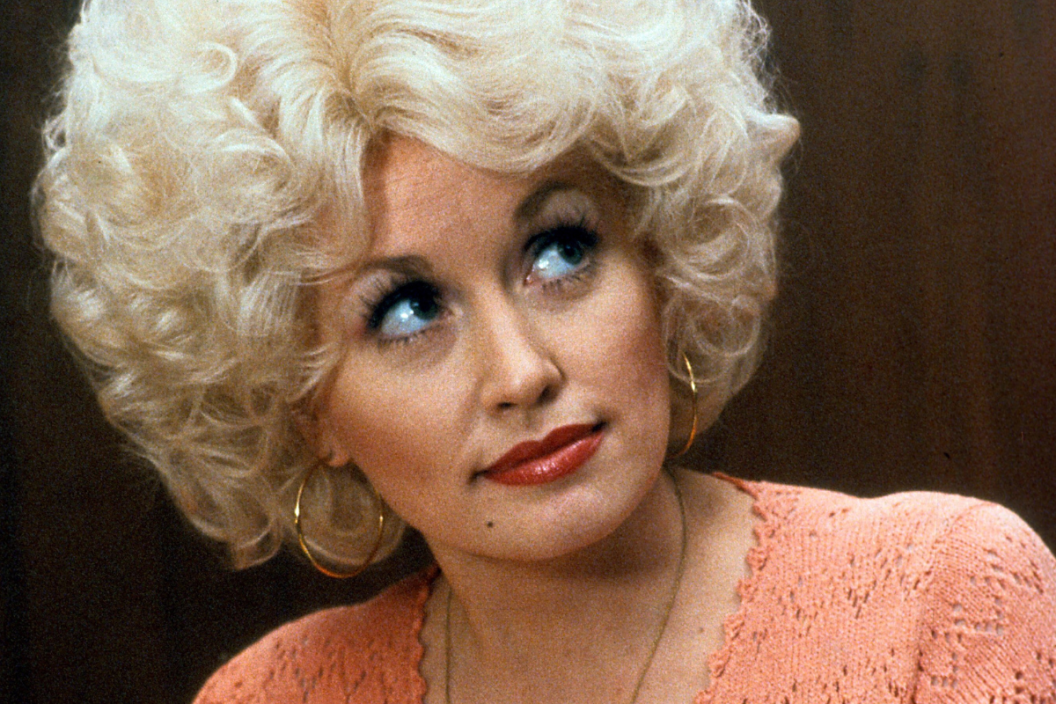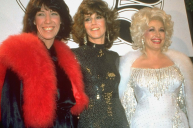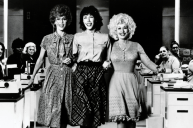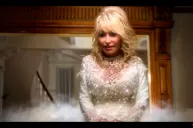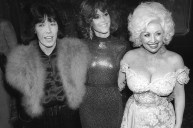Singer. Songwriter. Comedian. Entrepreneur. Philanthropist. Country Music and Rock and Roll Hall of Famer. In a career that's spanned half a century, Dolly Parton has done everything twice and had a witty one-liner about it.
With everything Dolly has achieved over her time in the public eye, one phase of her career can get lost in the shuffle. Throughout the 1980s, the country music multi-hyphenate starred in a string of workplace comedies, rom-coms and ensemble movies, taking on the kind of straight-shooting best-friend characters we imagine her to be in real life.
9 to 5
The events leading to Dolly's starring role in 9 to 5 sound like something out of, well, a Dolly Parton song. "During the process of development... I turned the radio on and Dolly Parton was singing 'Two Doors Down,'" Jane Fonda told Jad Abumrad in the podcast Dolly Parton's America. "I suddenly had a vision of Dolly as a secretary. Just the visual! She can't see her hands, typing with those long fingernails. Everything about it made me laugh. And I thought 'wow, she's never been in a movie.' Even if she can act, which I had no idea if she could or not, people would see the movie because of her."
Like a character in one of her songs, Parton subverted audience expectations with her portrayal of Doralee Rhodes. As the personal secretary for misogynistic executive Franklin Hart Jr. (Dabney Coleman at his sleaziest), Dora is rumored to be having an affair with her boss, which initially puts her at odds with the other women in the secretarial pool. She joins forces with two of her colleagues, the sardonic widow Violet Newstead (Lily Tomlin) and wide-eyed divorcee Judy Bernly (Jane Fonda) to take down their boss and remake their department into something more habitable for their predominately female workforce.
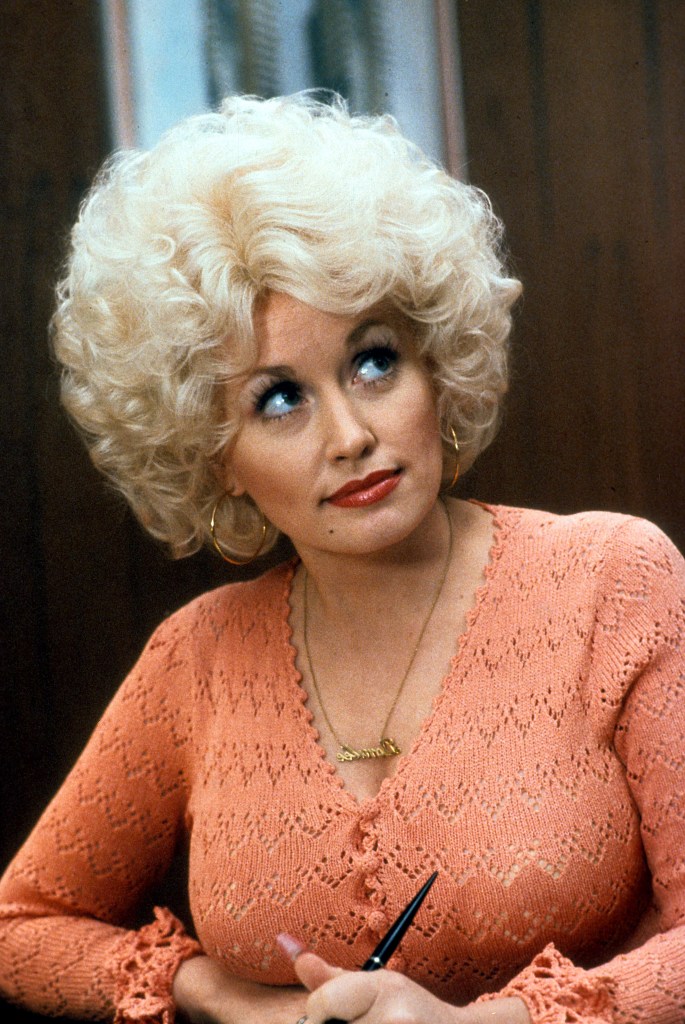
Photo by 20th Century-Fox/Getty Images
As it turned out, Dolly could act. She believably inhabited a role that drew on elements of her persona as a brash-yet-thoughtful southern woman who knew her way around a wisecrack and kept a level head in moments of crisis. In Dolly's scenes with Fonda and Tomlin, the trio has the kind of credible chemistry that allows audiences to believe this odd trio would be friends offscreen. Her naturalistic performance and subtle line-readings make Doralee's one-liners seem like something a person would really say if her boss had gotten on her last good nerve, and she kept a straight face while delivering dialogue like "I'm gonna change you from a rooster to a hen in one shot!" While Doralee wasn't written as a musician, Dolly's title song — which she wrote by clacking her acrylic nails together to sound like a typewriter — became the second song to top the Billboard Top 100 and the country charts, after "Harper Valley PTA."
Contemporary Dolly fans might know that the singer is reluctant to get into politics; she frequently defuses pointed questions with comebacks that would make Doralee proud, and has requested that candidates refrain from using her music on the campaign trail. A collaboration with Jane Fonda in the late 1970s, when Fonda's protests against the Vietnam War had polarized the American public, might seem surprising to Dolly's fans. "A lot of stuff she talks about, I don't necessarily agree with, but a lot of the stuff she talks about, I do," Dolly said in a 1980 interview promoting 9 to 5. "I'm also very opinionated about what I believe in, but I respect anybody's beliefs and the fact that they're willing to stand up for whatever they believe in."
The Best Little Whorehouse in Texas
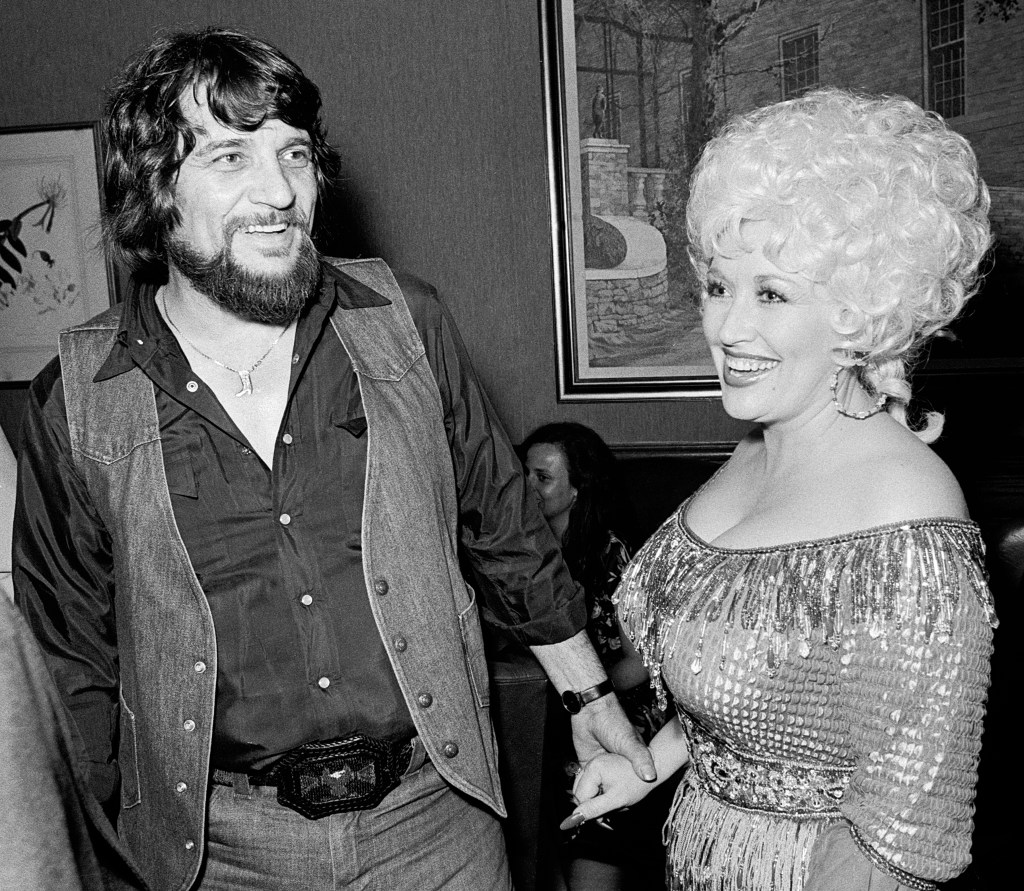
Photo by R. Diamond/Getty Images
9 to 5 was a phenomenon on its release in December of 1980. "Women were talking back to the screen," Fonda told Abumrad. Its success, and the acclaim Dolly received for her role in the film, played a role in her next project with 9 to 5 director Colin Higgins: a long-gestating big-screen adaptation of the hit Broadway musical The Best Little Whorehouse in Texas. Dolly starred as Mona Stangley, the madam at a popular Texas brothel that becomes a lightning rod for controversy when a conservative TV host (Dom Deluise) features it on his weekly TV show.
Throughout the 1970s, the general public regarded Dolly as a pinup girl as much as they did a musician; her extreme hourglass figure, big blonde hair and flirtatious persona got as much attention as her songs. Her role in The Best Little Whorehouse plays on these aspects of her public image. Mona takes on a provocative line of work and Dolly herself is frequently costumed in negligees and close-fitting, low-cut gowns, but the film depicts Mona as a pillar of the community who supports school programs and Little League teams, and her opening song "A Lil' Ole Bitty Pissant Country Place" tells us that she's an attentive mother figure to the girls at the Chicken Ranch. (When Burt Reynolds and Dolly were cast as the leads, the source material was rewritten to focus on their romantic relationship, and the roles of the Chicken House girls were all but edited from the film.)
While The Best Little Whorehouse was among the top-grossing films of 1982, it didn't have the same impact of its predecessor, 9 to 5. The film suffered from a long development period and a production that Dolly told Andy Warhol was "a hard one to do," adding "at that particular time I was ill, and coming from a Broadway play, we already had everything against us." Its muddled aesthetic — which looked like an R-rated sequel to the Disney movie The Apple Dumplin' Gang — didn't live up to the provocative premise of the source material. The greatest legacy of The Best Little Whorehouse in Texas is its music. The producers had commissioned Dolly to write new musical numbers to replace the songs cut from the film, but none of the new material she'd written made it into the final cut. Her version of the song "Hard Candy Christmas" made Billboard's country top 10, and she has sung it on TV Christmas specials and at concerts around the holidays.
Steel Magnolias
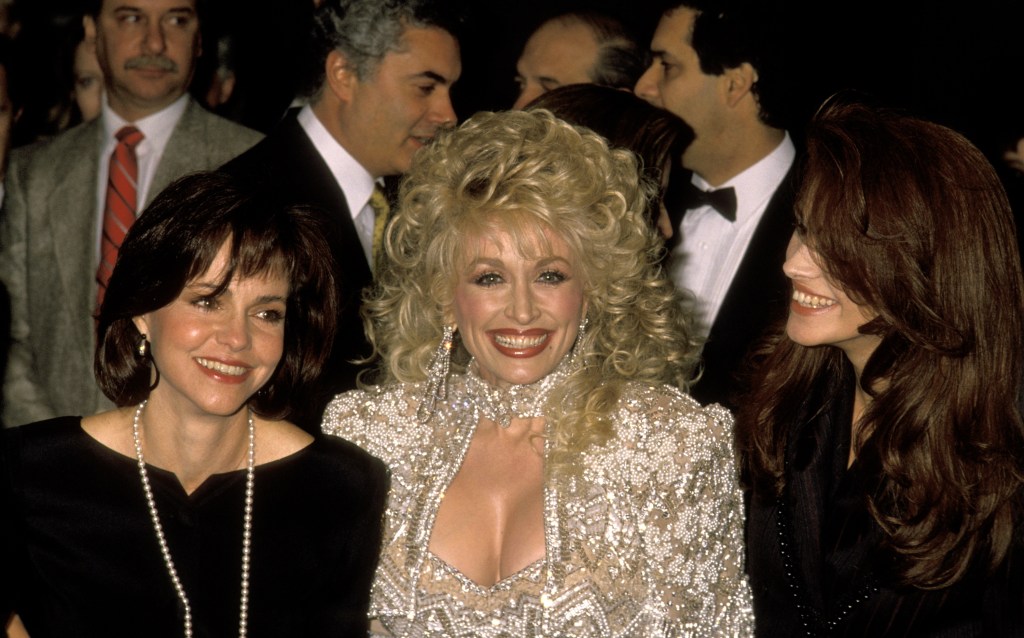
Photo by Ron Galella/Ron Galella Collection via Getty Images
Dolly's strongest work across any media has been in partnership with other women, and after the minor successes of Best Little Whorehouse and Rhinestone (which was not available to view for this article), she returned to her strengths with the film adaptation of Steel Magnolias. Playwright Robert Harling wrote the comedy-turned-tragedy about a tight-knit group of women who attend the same beauty parlor as a tribute to his younger sister, who died of a failed kidney transplant not long after the birth of her son.
Character actress Margo Martindale had created the role of beauty-parlor owner Truvy in the play's off-Broadway run, but when producer Ray Stark acquired the film rights, he recast the six leading roles with big-name actresses. "I think they actually did see me for the role of Truvy, but that was just a courtesy, and I was not upset that Dolly got the role," Martindale told Garden and Gun in 2017. "Truvy's all about heart, and Dolly Parton has a big heart."
As the owner of the Beauty Spot, Truvy is the glue holding the main characters together. When the movie opens, her skill at hairdressing is on full display as she teaches her new hire Annelle (Daryl Hannah) how to set curls and mix dye. Truvy's belief that "there's no such thing as natural beauty" mirrors Dolly's famous joke that "it takes a lot of money to look this cheap!" Her subtle reactions to the gossip that fills Truvy's beauty salon underscores her skills as an actress; the way her eyes flash or she breaks into a tight, closed-mouth smile in response to the curmudgeonly observations of Ouiser (Shirley MacLaine) underscore the humor in the scenes and show us the limits to Truvy's good graces.
The Louisiana-born Harling wrote some quippy dialogue for Truvy that sounds like it could be stage patter at one of Dolly's shows. She's able to deliver it in a natural, understated tone, allowing for the comedy and pathos to speak for themselves and letting Harling's words take center stage. Truvy's statement "laughter through tears is my favorite emotion" could not only be a mission statement for Steel Magnolias but also for Dolly's body of work.
Dolly closed out the 1980s in Straight Talk, the most straightforward romantic comedy of her big-screen work. Down-on-her-luck divorcee Shirlee Kenyon talks her way into a position as a receptionist at a Chicago radio station, but through a series of mix-ups and mistaken identities, she ends up hosting a call-in advice show. Her no-nonsense advice attracts a devoted following among Windy City listeners, as well as the attention of investigative reporter Jack Russell (James Woods, convincingly portraying a blowhard), who sets out to learn her true identity.
Like most romantic comedies of the era, Straight Talk has great momentum, but its story doesn't stand up to scrutiny. To Dolly's credit, she's able to balance Shirlee's surprise at her new job with her sense of ethics — such as her resistance to lying about her background — in a way that makes the story of Straight Talk seem plausible.
In the years since Straight Talk's release, Dolly has released a string of albums, co-written two stage shows—including a Broadway adaptation of 9 to 5 — collaborated on the novel Run Rose Run with James Patterson, produced a series for Netflix, starred in the podcast Dolly Parton's America, and funded the Moderna vaccine for COVID-19. She's also continued to appear in films on the big and small screen, from 2012's Joyful Noise to her beloved holiday movies Christmas of Many Colors.
